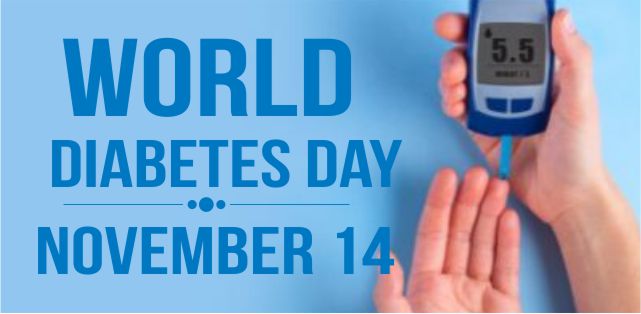World Diabetes Day: 14th November

World Diabetes Day
World Diabetes Day, observed every year on November 14, plays a vital role in raising global awareness about diabetes, a major public health issue affecting millions worldwide. The day underscores the urgent need for action in areas such as prevention, early diagnosis, effective management, and equitable access to care. The theme for 2024, "Breaking Barriers, Bridging Gaps," emphasizes the collective commitment to overcoming obstacles in diabetes care and ensuring that every person diagnosed with the condition has access to high-quality, affordable treatment.
Theme
This year’s theme focuses on inclusivity in healthcare, urging collaboration among governments, healthcare organizations, and communities to tackle disparities in diabetes care. It calls for a unified approach to not only reduce the risk factors associated with diabetes but also provide ongoing support to those living with the disease. Through observances, educational programs, and campaigns, the goal is to inspire both individuals and communities to take proactive steps toward a healthier future, aiming to close the treatment gap and improve the lives of millions impacted by diabetes.
Symptoms of Diabetes
Diabetes symptoms can appear suddenly, but in the case of type 2 diabetes, they often develop gradually over time, sometimes taking years to become noticeable. Common signs include increased thirst, frequent urination, blurred vision, fatigue, and unexplained weight loss. If left untreated, diabetes can cause damage to blood vessels in vital organs such as the heart, eyes, kidneys, and nerves. This can increase the risk of serious health complications like heart attacks, strokes, kidney failure, and, in some cases, permanent vision loss due to damage to the retinal blood vessels. Additionally, diabetes can result in nerve damage and poor circulation in the feet, leading to ulcers and, in severe cases, amputations.
How to Prevent Diabetes?
Adopting healthy lifestyle changes is the most effective strategy to prevent or delay type 2 diabetes. Key prevention recommendations include maintaining a healthy weight, engaging in at least 30 minutes of moderate exercise daily, following a balanced diet that is low in added sugars and saturated fats, and avoiding tobacco use. By proactively managing these lifestyle factors, individuals can significantly reduce their risk of developing type 2 diabetes and its associated complications.
1 like |
0 comment
 4.5/5
4.5/5








